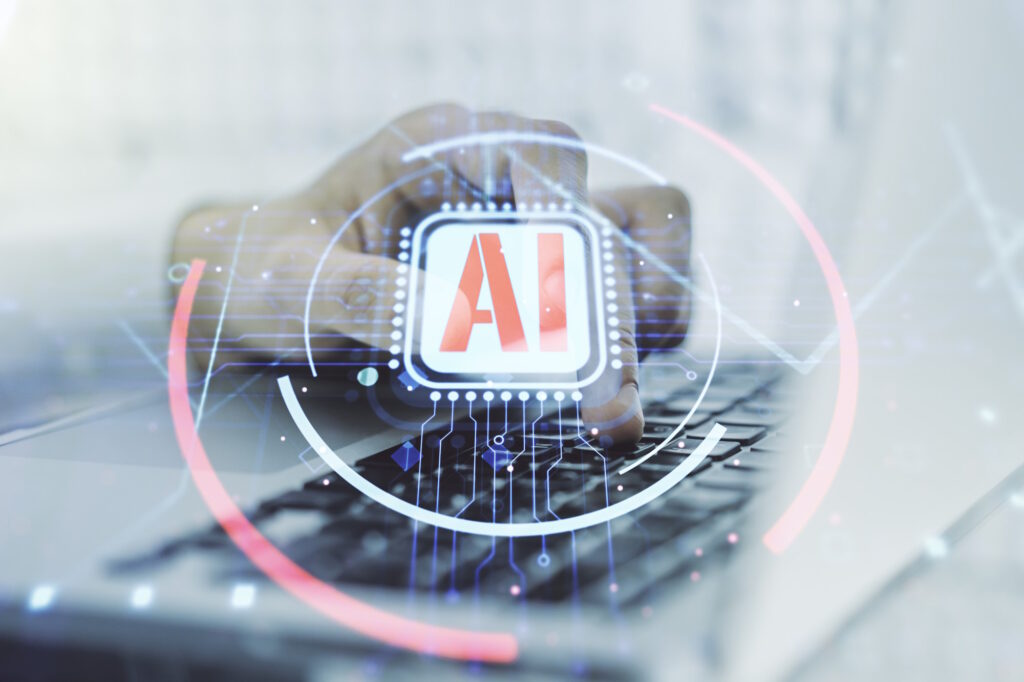Is AI here to harm or help? That is the debate legal professionals are having as they consider the power and complexity of generative AI. Opinions may vary, but there’s no denying AI’s influence as the ultimate disrupter. Scan the internet and you’ll find every take from apprehension to high intrigue. But consistent in these conversations is one central question: What does it mean to be a lawyer?
Given the rate of change, failing to engage AI head-on may yield the most consequential case of professional FOMO imaginable. But fear of missing out might be the least of one’s worries. Dismissing something as ubiquitous as AI could result in being left behind. So with that said, perhaps a few stipulations: 1) AI is already here and isn’t going anywhere; 2) Although not perfect, improvements to generative AI are taking place at a rapid, and perhaps soon-to-be exponential, pace; and 3) appropriate safeguards to steer AI in the right direction should be a top priority.
AI comes in different forms. But one development to grab recent headlines is the controversial DoNotPay app and its self-proclaimed robot lawyer. Not surprisingly, talk of replacing lawyers has been met with noticeable pushback from the legal profession. In his YouTube video, Never Hire A Robot Lawyer, Attorney Devin Stone (aka, the LegalEagle) highlights barriers to DoNotPay’s plans to disrupt the industry. Such barriers include practicing law without a license, and rules banning electronic devices in the courtroom. Stone concludes that robots won’t be replacing attorneys any time soon, and chastises the app’s creator for allegedly inserting himself in an area he knows very little about:
“But does this story sound familiar to anyone else, Stanford University, precocious genius beloved by Silicon Valley aiming to revolutionize an industry they never actually worked in despite experts in the field telling them in no uncertain terms that their projects would not work? Yes, he seems to be the latest technocrat who has no idea what he’s talking about, trying to propose technological solutions to non-technological problems.”
But AI is bigger than one single app. And regardless of a particular company’s success or failure, the concepts behind legal tech, the search for increased efficiency, cost savings, supplying demand, and overall modern convenience, continue to drive innovation and curiosity to discover the capabilities AI has to offer. And just as the legal community adapted its rules to fit a post-COVID-19 society, so too will further changes be necessary to keep pace with generative AI. The legal profession is in a constant state of reaction to the world around it. And that world is focused on AI. As the saying goes, “All the forces in the world are not so powerful as an idea whose time has come.”

Clearly, that time is now. Whether for or against, there is no ducking the elephant in the room. The legal profession will have to adapt with the rest of the world. In an interview with 60 Minutes, Google CEO Sundar Pichai predicted that knowledge workers will feel the effects of AI when it comes to the types of jobs that will be available. It stands to reason that this will include lawyers as well. But this doesn’t have to be a bad thing. It may, however, require a paradigm shift in how the profession values its time and resources. It may require reconceptualizing what it means to be a lawyer.
The legal profession is beginning to appreciate AI as a valuable tool to help law firm owners and would-be solo practitioners achieve new levels of success. It’s a force with room for growth, but a force nonetheless. In a video examining AI’s legal writing capabilities, Attorney Jarrett Stone of Law Venture concludes:
“If I boil it all down, AI allows law firms to achieve more with less. And as a result, my prediction is that, once AI comes into its own as a legal resource, we’re gonna see an exponential explosion of lawyers starting their own small law firm.”
Although Stone sees warning signs as to what AI portends for law firm associates, his conclusion speaks to a potential shift once attorneys begin to embrace AI as a tool of empowerment. Being able to do more with less could help level the playing field, affording entrepreneurial attorneys the opportunity to start their own practices and compete in spaces heretofore restricted to large firms representing clients with deep pockets.
Similarly, in the world of deposition reporting, attorneys can utilize AI as a member of their legal teams to level the playing field and achieve greater efficiency. But there has been pushback. AI is, after all, a non-stenographic means to capture the record. So it makes sense that an industry reliant on the stenograph machine would resist change as a threat to the status quo. How can non-stenographic means be trusted? What happens if the technology fails? How can technology account for certain intangibles unique to human interaction? All valid concerns. However, these questions speak less to avoiding AI altogether than to embracing AI with human safeguards.
 Readback is a game-changing deposition service that pairs human transcribers with AI speech-to-text technology. Readback’s flagship category, Active Reporting, provides certified transcripts in one day, rough drafts in one hour, and near-time text in a matter of seconds at low, flat rates. Readback’s AI technology captures the testimony. However, it’s the human Guardian who conducts the proceedings while a team of human transcriptionists with a live feed edit the record for accuracy and trustworthiness as it’s being produced. This grants attorneys flexibility to focus on legal analysis while Readback creates a verbatim transcript. With Readback, attorneys can shift their attention to more important tasks while the transcript is being rendered.
Readback is a game-changing deposition service that pairs human transcribers with AI speech-to-text technology. Readback’s flagship category, Active Reporting, provides certified transcripts in one day, rough drafts in one hour, and near-time text in a matter of seconds at low, flat rates. Readback’s AI technology captures the testimony. However, it’s the human Guardian who conducts the proceedings while a team of human transcriptionists with a live feed edit the record for accuracy and trustworthiness as it’s being produced. This grants attorneys flexibility to focus on legal analysis while Readback creates a verbatim transcript. With Readback, attorneys can shift their attention to more important tasks while the transcript is being rendered.
So is there room for AI on your legal team? Absolutely, especially when working with a service such as Readback that grasps the importance of embracing AI with human guardrails. Take a moment to learn more about this empowering deposition service. Visit our website to join a live demonstration.
*Disclaimer: Readback is neither a law firm nor a substitution for legal advice. This post should not be taken as legal opinion or advice.



